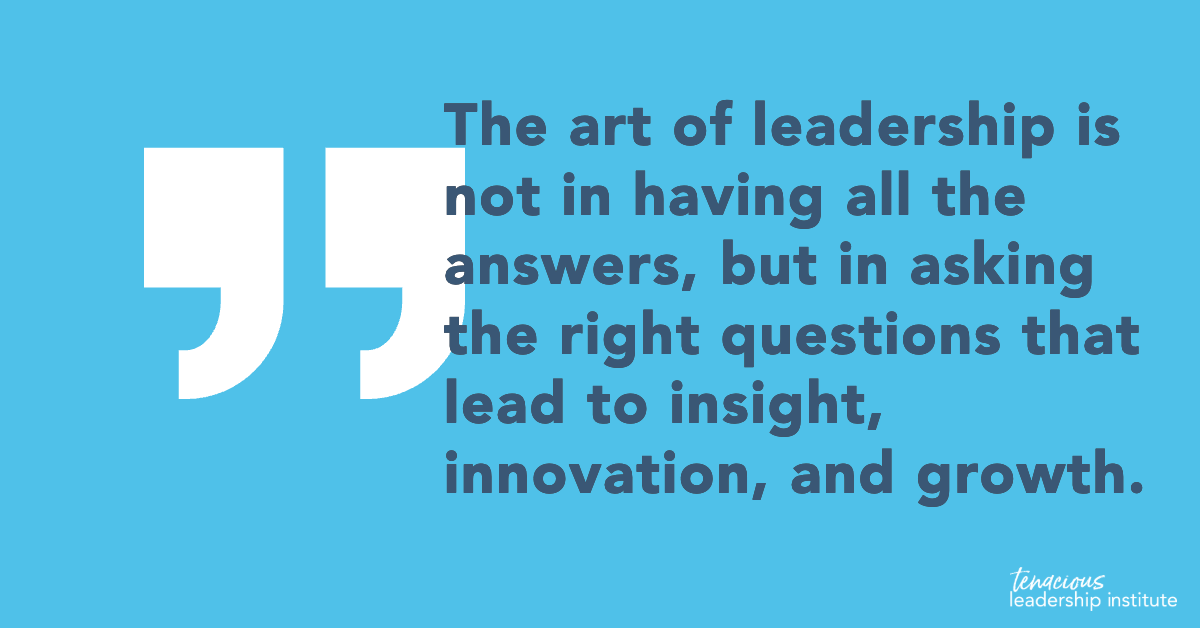Five Difficult But Important Coaching Questions to Ask During Disruption
Disruption is rarely just operational—it’s emotional, relational, and deeply psychological. When markets shift, strategies fail, or internal trust begins to fracture, leaders often double down on execution. But during ambiguity, the greatest leverage point isn’t control—it’s curiosity. And that starts with asking better questions. Not surface-level check-ins or data reviews, but bold, brave coaching questions that invite people to reflect, realign, and re-engage.
Yet asking the right question at the right time is a skill many leaders haven’t been trained for. According to research from Harvard Business School, organizations that encourage inquiry-based leadership outperform their peers by 21% in decision speed and 27% in innovation outcomes. But those same studies show that most leaders underuse reflective questioning in high-stakes moments, especially under pressure. Why? Because it’s far easier to fill the space with direction than to make room for uncertainty.
At TLI, we’ve coached senior leaders through mergers, market pivots, leadership transitions, and cultural overhauls—and the same truth keeps showing up: progress doesn’t come from pushing harder; it comes from asking wiser.
The five questions below may be uncomfortable, but they’re also catalytic. Use them to uncover clarity, reestablish trust, and reignite forward momentum—right when your team needs it most.
Because clear answers rarely come from easy questions.
1. “What are we avoiding talking about right now?”
Silence is often louder than disagreement during disruption. When something critical is being avoided—conflict, loss, uncertainty—energy gets wasted in maintaining appearances rather than making progress.
Avoidance creates misalignment and drains capacity. Bringing hidden tensions into the open allows for resolution and redirection. In our executive coaching programs, we’ve seen this question unearth the real roadblocks faster than any dashboard or report.
2. “What assumptions are we making that might not be true anymore?”
Every disruption challenges the frameworks we’ve relied on. But many teams cling to outdated assumptions—about the market, the team, or what success looks like—without realizing it.
Assumptions are invisible until questioned. This inquiry opens the door for innovation and agility. This is a cornerstone question in the TLI programs—and often reveals the fastest path to renewed strategy.
3. “Where are we confusing activity with impact?”
When people feel overwhelmed, they double down on what’s familiar. But busyness can mask a lack of clarity or progress. Leaders need to differentiate between what’s urgent and what’s meaningful. This question refocuses energy.
Under pressure, the brain narrows its focus to short-term survival tasks. This question activates the prefrontal cortex to reprioritize for long-term value.
4. “How are we showing up in ways that erode trust?”
Disruption can trigger reactivity, withdrawal, or over-control. These behaviors may seem subtle—but they have outsized effects on team cohesion and performance. Trust is the currency of change.
This question prompts behavioral accountability, not blame. We coach leaders to use this in 1:1s and offsites—it’s especially powerful when asked of oneself.
5. “What future are we unconsciously creating by the way we’re responding right now?”
This question zooms out. It challenges the reactive loop and asks teams to reconnect to intention. Every response is a building block of the future.
Teams need to understand the long-term impact of today’s mindset. This is a favorite for closing strategy sessions—it brings urgency and ownership into alignment.
Asking difficult questions isn’t about stirring discomfort for its own sake—it’s about unlocking what’s been stuck. The leaders who lean into these moments of truth create teams that are more aligned, resilient, and forward-moving.
When you consistently make space for the hard conversations, you build a culture of clarity and courage—one where people don’t just react to disruption, they rise through it.
If you’re ready to build a culture where these kinds of questions are normal—not rare—let’s talk. Contact us here.
Leadership Practice: The One Question You’re Afraid to Ask
This week, set aside 20 minutes to reflect:
“What’s the one question I’m afraid to ask my team—or myself—right now?”
Write it down. Sit with it. Then decide: will you avoid it, or will you lead with it?
Because in disruption, the questions we resist are often the exact ones that move us forward.
Author
Athena Williams, Founder and CEO of Tenacious Leadership Institute, has been supporting leaders worldwide to become more tenacious for over 20 years. She has found that tenacity is the key to sustained leadership success in today’s ever-changing world. Through her coaching and leadership development programs, she helps leaders expertly handle change, complexity and other challenges so they can quickly get better results for themselves, their teams and their organizations.
Take the first step to becoming a tenacious leader by scheduling a call with us.



